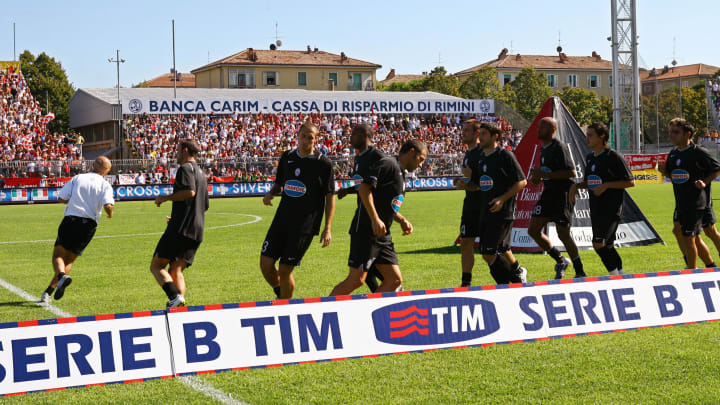Calciopoli: The Juventus scandal in 2000s explained

When Juventus were handed a 15-point deduction for conducting illegal financial activities - a decision subsequently overturned - it was by no means the first time they'd been in trouble with the authorities.
When it was announced that they were being investigated late last year, everybody's minds were cast back to 2006 and the infamous Calciopoli saga that rocked Italian football.
It saw Juventus be fined, stripped of titles and relegated, and other clubs as well as numerous individuals heavily punished too.
Here's everything you need to know about one of football's biggest ever scandals.
Why were Serie A clubs punished?
What made Calciopoli so shocking was how directly the wrongdoings had impacted matters on the pitch, with a huge match-fixing plot rather than illegal off-the-pitch activities uncovered by the authorities.
Such discoveries were made accidentally, with prosecutors monitoring phone calls as part of an investigation into doping allegations against Juventus and hearing key figures in Italian football pressure refereeing officials to favour certain clubs.
The investigation that followed found that multiple Serie A clubs as well as the Italian footballing authorities had a considerable influence over refereeing matters, with Juventus general manager Luciano Moggi at the centre of it all.
It was determined that he and those in similar positions at AC Milan, Lazio and Fiorentina were effectively choosing which officials refereed their matches, ensuring such officials favoured their clubs and were able to postpone matches if they preferred a later date.
While no referees were found to have explicitly taken bribes, it was believed that they went along with orders out of fear for their careers given the power such figures held.
How were Serie A clubs punished?
The four aforementioned clubs were all found guilty, not explicitly of match-fixing but of manipulating matters to ensure they were favoured by officials, but the punishments they received differed greatly.
There were calls for all four to be relegated to Serie B, but only Juventus suffered such a fate, and they were also stripped of two Serie A titles.
Fiorentina and Lazio were banned from European competitions for a season and forced to play two home games behind closed doors, while they and Milan were all docked 30 points for the season just gone and varying smaller amounts for the following campaign.
Many felt there was corruption in terms of the punishments handed out with such punishments handing Inter Milan one league title and giving them a huge chance of winning another.
All four clubs were heavily fined and a number of officials that worked for them, the Italian FA and the refereeing organisations were handed bans, fines and prison sentences.
What happened next?
With the club able to keep hold of a number of key players including Gianluigi Buffon, Pavel Nedved and Alessandro Del Piero, Juventus won Serie B with ease the following year.
In the top flight, with Juventus absent and Fiorentina and Milan being docked points, Inter became champions with ease and would dominate the league for years to come.
Juventus would ultimately knock them off their perch and dominate again themselves, but the long-term impact of Calciopoli was still considerable nonetheless.
With appeals being filed and verdicts being changed, trials of those involved went on for years, while a huge number of fans walked away from the sport, losing faith that matches were fair and free of corruption.